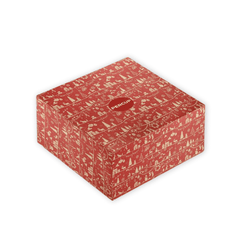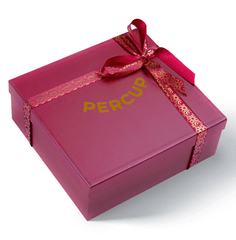Your digestive health can be affected by a lot of things, one of which is a leaky gut. A leaky gut happens when the tight junctions in your intestinal wall loosen, and undigested food and other substances gain access to your blood. This can result in several stomach problems, including bloating, constipation, gas, or diarrhea.
One of the ways through which you can soothe a leaky gut is by watching the type of foods you eat. Another way is to take gut healing tea. These teas are made from herbs that soothe inflammation in the gut lining and help with irritable bowel syndrome and autoimmune diseases like Crohn's. Their health benefits positively affect your digestive health and enhance immune function. A gut healing tea provides impressive results when you drink it over time, especially when you're familiar with the components of each tea. In this article are some of the categories of herbs that make excellent gut healing teas and the best teas to take for a leaky gut.
Categories of Herbs
Research shows that autoimmune diseases happen when the immune system attacks bodily tissues instead of fighting off pathogens. As a result, you might experience IBS and a leaky gut. Although certain foods cause inflammation, removing these foods or food groups from your diet isn't enough. You need to know the extent of your leaky gut before starting treatment. However, the following categories of herbs contain anti-inflammatory properties that can be used in a healing tea to promote healthy digestion and stimulate gut healing.
Soothing Slimers
Soothing slimers or mucilaginous demulcents are herbs that take the form of mucus and coat the digestive tract when you drink them in tea. When you drink them many times, they reduce inflammation and allow the gut to repair itself. Slippery elm is an excellent example of soothing slimers, but due to how extinct it's becoming, marshmallow root is an alternative. Marshmallow root is more cost-effective, tastier, and more common than slippery elm. These two soothing slimers help the body heal dry and inflamed tissues in the gut lining. Licorice root is also a type of soothing slimers herb, and it contains gut healing properties that facilitate antimicrobial activities. However, taking licorice root herbal tea has side effects, as it can offset your reproductive hormones and blood pressure. So, take licorice root in small amounts or opt for the organic licorice root that lacks glycyrrhizin and poses fewer threats to your health. Plantain leaf, violet leaves, and cinnamon bark are other soothing slimer tea herbs you might want to mix for your leaky gut tea. Mucilage takes as long as seven hours to extract, and it has to be in warm or cold water. This group of herbs also helps people who suffer from ulcers and heartburn.
Bitter and Antispasmodic Herbs
The best herb in this group is chamomile, a bitter herb that aids digestion and helps with spasms—chamomile curbs intestinal spasms, esophageal spasms, stomach upset, and cramping. Chamomile relieves you of some of the symptoms of leaky gut you'll experience in your healing journey. Apart from digestive issues, chamomile is an excellent relaxant and can help you handle stress and anxiety and enhance your night's sleep. But please, refrain from taking a hot cup of chamomile tea at work.
Astringent Herbs
When mixed in tea, these herbs tighten the tissues that have come loose, as with the case of leaky gut syndrome or chronic diarrhea. Your gut must have a balanced permeability to absorb nutrients and function properly. Astringent herbs not only tighten the cells in the gut lining but also help with other body parts that might need tightening. For instance, they control diarrhea and limit the frequency of bowel movements. An astringent herb you might want to try is rose petals. We know that rose petals add color to any environment because of their beauty, but that's beside the point. Rose petals contain mild tannins that enhance your digestive health and tone the gut. Other astringent herbs include calendula flowers, plantain leaf, raspberry leaf, strawberry leaf, cinnamon, tannins, and lady's mantle leaf. All of these herbs are astringent, and they tone gut issues. However, a clinical herbalist would recommend that you be careful with the amount of astringent herbs you take because too much of it can worsen constipation in people. You should also know that tannins are best extracted in hot water.
Vulnerary Herbs
Vulnerary herbs are famous for their wound healing properties and the effect they have on bug bites, bee stings, cuts, scrapes, and even a leaky gut. Although they have a bitter flavor and are pricey, calendula flowers are fantastic for wound healing. Plantain leaf is another vulnerary herb that can replace calendula. Both herbs are helpful for bodily injuries and gut healing. Gotu kola is another herb with healing properties and stress and anxiety relief. This herb also improves your focus and cognition. You can extract all these herbs in different conditions.
Spices
Spices do much more than add flavor to your tea; they have healing properties that are excellent for the gut. You can extract these herbs by simmering them for 15 to 20 minutes.
- Cinnamon bark is an astringent herb that is antimicrobial, anti-inflammatory, and controls blood sugar levels.
- Clove is famous for being a pain reliever and an antimicrobial herb.
- Cardamom replenishes digestive juices and lessens intestinal spasms and gas.
- Star Anise does not only have a sweet taste; it also increases antimicrobial activity.
- Fennel seeds ease pain, gas, and intestinal spasms.
- Ginger root improves digestion, the good bacteria in the gut, and combats gas and intestinal bugs.
- Pau D'arco bark improves symptoms of microbial imbalance and yeast overgrowth.
Aromatic Herbs
Aromatic herbs are antimicrobial, antifungal, and antiseptic, characteristics that help balance the good and bad microbes in your gut. These herbs lessen gas and bloating and help with dysbiosis, a common cause of leaky gut. Aromatic herbs include lemon balm, fennel seeds, spearmint, peppermint, and ginger root. You can use these if you don't have cases of ulcer or heartburn. As a herb, lemon balm has relaxing qualities that calm a hyperactive nervous system. It is also used alongside other herbs to treat anxiety and depression. You can include or substitute other herbs for the ones mentioned above. For instance, if you have high blood pressure, you might want to replace marshmallow root for licorice. If you're not taking any prescribed medication from your health practitioner, adding St John's Wort will benefit your liver. Others include catnip for heartburn and sage for digesting fats. Although herbal medicine is taking on a new edge, it's also vital that you visit a medical practitioner to identify the cause of your unhealthy gut and tell you what kind of herbs to take to relieve yourself.
Benefits of Gut Healing Tea
Herbal teas and green tea have several health benefits, some of which we have outlined below.
Relieves Stress and Anxiety
Your gut microbiome can experience an unbalance when you're stressed out or have anxiety bouts, which can cause medical conditions like gut inflammation, indigestion, and diarrhea. Drinking certain herbs and teas can be a terrific way to curb stress and anxiety and get your gut health under control. For instance, turmeric, ginger, and chamomile tea help you relax and focus, reducing the effects of stress on your body system.
Improves Detoxification
When you drink tea, you enhance the natural processes your body undergoes to rid itself of toxins. You also improve your kidney and liver health by taking detox teas made from milk thistle, burdock root, green tea, and red clover.
Reduces Inflammation
You increase your risk of developing gut inflammation when you take too much alcohol, eat inflammatory foods, and practice a sedentary lifestyle. Inflammation affects your gut microbiome, but some teas contain anti-inflammatory compounds. Other herbs like turmeric, ginger, and mint ease skin issues and inflammation in the gut and muscles.
Heals The Gut Lining
Marshmallow root tea and mint tea are great teas you can take to support the healing process of your gut lining and improve the symptoms of this medical condition.
Strengthens Your Immune System
A healthy immune system balances your gut functionality and reduces your chances of suffering from leaky gut syndrome. Organic rose hip, green tea, cranberry tea, elderberry tea and feverfew, and lemongrass tea boost your immune system.
Factors To Consider When Buying Gut Healing Tea
There are a plethora of teas you can choose from when promoting your gut health, and this can be difficult at times. The following factors will give you better ideas when buying tea from health food stores.
Consider Organic Teas
We advise that you consider organic tea when searching for teas you can drink to improve gut health. Non-organic teas have some factors that do not make them suitable for your health. Firstly, non-organic teas can contain pesticide and dirt residues that can affect your health when you consume them. Rather than go through the troubles, organic rose hip and organic cinnamon teas are excellent tea options that still have many health benefits.
Loose Leaf or Tea Bag?
It's not enough to buy certified organic teas; if your preferred organic licorice tea is in a tea bag, check that it's an unbleached organic tea bag. Bleached tea bags are carcinogenic because they contain chemicals like dioxin, which gets absorbed by fat tissues. Most times, tea bags are people's first choice because of how practical they are; all you need to do is dip your favorite organic chamomile tea in hot water, and voila! It's ready. If you fall into this category, take all the precautionary measures to ensure that you do not compromise your health further. Loose leaf teas or dried herbs are excellent options if you have a tea infuser, but you also want to confirm that the loose leaf tea is organic. For instance, an organic marshmallow loose leaf tea may come with the promise of being cleaner because they're natural, but you should confirm for yourself before you buy them.
Flavors
If the tea you want has a strange name, it's most likely to have natural flavors, another name for chemically processed ingredients. Look for teas with whole herb flavors; go through the ingredients list and ensure that the only ingredients there are the herbs from which the tea is made. Tea flavors can be obtained from fruit juice, spice, or vegetables. Lastly, you want to avoid teas that have strong smells because those could also contain processed flavoring.
The Environment
Sometimes, harmful toxins can cause a leaky gut, and these toxins are present due to environmental pollution. So, we should be more careful with our environment if we want healthy microbiomes. One of the ways we can do that is to choose a tea brand that has the best interest of the environment. There are tea companies that engage in several environmental health campaigns. Some others practice recyclable packaging so that the environment would not undergo more degradation. Lastly, some of these herbal tea companies even go as far as funding autoimmune research, raising awareness, and advising taking medication. So, if you are particular about all of this, go for a brand whose purpose is to raise awareness and help fund autoimmune research.
Best Tea for A Leaky Gut
The best gut healing tea is the Leaky Gut Blend, made from marshmallow root, plantain leaf, calendula, ginger, and chamomile. This tea blend optimizes gut health and helps you avoid future attacks targeted at your intestinal wall. This gut healing tea contains the following blends which you benefit you as thus:
Marshmallow Root
Marshmallow relieves symptoms of peptic ulcers, gastritis, and colitis. You can take this herb when eating your food, which will help you fight heartburn and inflammatory bowel syndrome.
Plantain Leaf
Most times, we consider plantain leaves garden pests because they grow everywhere. We might be overlooking the essence that plantain leaves bring to a leaky gut lining. Plantain leaves support digestive health, enhance healing and decrease gut swelling.
Calendula
Calendula can be considered a natural detox herb because of its detox properties. This herb also helps with gut swelling and amoebic and bowel infections.
Ginger
Ginger always crops up in discussions about gut health. Ginger soothes the stomach, is anti-inflammatory and gets rid of toxins that can affect our immunity.
Chamomile
Chamomile is one of the oldest medicinal herbs that has widespread uses due to its healing properties and antioxidants. Chamomile contains potent oils that contribute primarily to its functionality. The following are some benefits of chamomile.
- It is used as a mild sedative for stress and anxiety.
- Chamomile has high amounts of antioxidants.
- It improves digestion.
- It has anti-inflammatory properties that help it reduce pains and relieves congestion.
- Chamomile helps with skin conditions.
Directions For Use
While brewing your herbal tea, you might need a mason jar, a French press, and teaspoons for measuring. You can use a fine sieve if you don't have a French press.
- Boil one to two cups of water
- Add two heaping tablespoons of the herbs to your water and brew for about 5 to 10 minutes.
- Once it's time, strain your tea and enjoy the goodness of our leaky gut blend. For sweeteners, use stevia leaves or honey.
Conclusion
It is important to note that balancing your gut microbiome requires observing several practices. These practices include reducing stress levels, naturally detoxing, eating anti-inflammatory foods, and taking herbal teas that reduce inflammation and strengthen your immune system. Lastly, we want you to know that there is no clear-cut way to approach herbal medicine because different things work for different people. However, adding the Leaky Gut Blend is another excellent way to improve your gut and overall health.




















